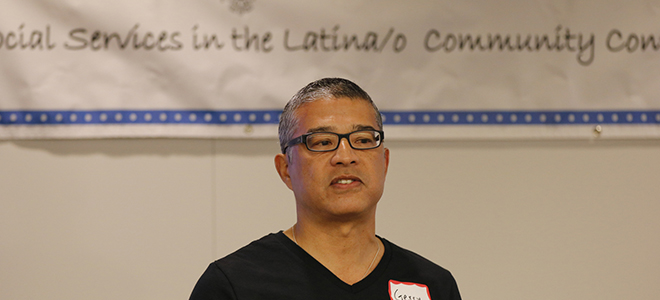
Social Workers Come Together for ‘This Incredible Conference’ At student-organized event, professionals and scholars gather at UCLA Luskin to hear experts discuss issues of vital importance to the Latina/o community
By Les Dunseith
It’s 8:30 a.m. on a sunny Saturday, and the second floor hallway of the Public Affairs Building at UCLA is abuzz with activity as professional social workers join UCLA Luskin students and faculty for a daylong series of lectures and workshops designed to help them do the best work possible for Latina/o populations in Southern California.
“People come from all over for this conference,” said Gerry Laviña, director of field education for the Department of Social Welfare, as attendees began to file into a large classroom to begin the 15th annual Social Services in the Latina/o Community Conference on May 13, 2017. “They look forward to it.”
One group, from Ventura County, even arrived two hours early. By the time Dean Gary Segura delivered his keynote address shortly after 9 a.m., a total of about 100 people were on hand. Other participants would continue to arrive as workshops proceeded throughout the day. The student-organized conference has become so successful, in fact, that advance registration had to be capped at 220 this year.
A 1988 graduate of UCLA Luskin’s MSW program, Laviña noted during his opening remarks that such popularity wasn’t always the case. When it began a decade-and-a-half ago, the conference “was struggling, struggling, struggling,” he said. “But now it’s this incredible conference — all for free — because of the hard work that the students have done.”
Christina Hernandez, a second-year Master of Social Welfare student and one of the three co-chairs of the Latina/o Caucus, said the conference is the culmination of a yearlong process that starts with the writing of grant applications soon after the academic year begins. This year, a total of about $7,000 in grant funding was obtained.
The six-member board of the Latino Caucus includes two first-year MSW students whose participation is designed to help them be better prepared to lead the caucus and its annual conference next year. It’s a tradition that Hernandez said benefited her personally, as it did her co-chairs and fellow MSW students, Sandra Cervantes and Corina López.
“In my first year, I saw the time commitment that was required for the conference,” Hernandez explained. “So going into this year, I knew that I had to give it my all in order to make it a successful conference.”
As the date drew nearer, the students worked with Laviña and their other faculty advisers, Sergio Serna and Hector Palencia MSW ’08, to issue a call for proposals from potential speakers on various topics. The number of applicants exceeded the time and space available, which led to a culling process.
“We select proposals that seem most appropriate,” said Hernandez, who also noted that the organizers seek a balanced program of workshops, in part because many professionals earn continuing education credit for licensing purposes by attending. For instance, “two really good candidates” proposed workshops on law-related topics, but only one of them made this year’s agenda.
That session, “Trauma-Informed Immigration Law for Social Workers,” was one of nine workshops that took place during the day, which included a lunch break that featured a performance by Aztec dancers. A sample of other workshop topics included “Critical Race Theory in Social Work Practice: Going Beyond Competency” and “Queer Latinx: Policy & Critical Discourse.”
Although workshop topics were highly varied, one theme that got a lot of attention was the symbolic and practical impact of Trump administration policies on the vital work being done by the social workers who interact on a daily basis with members of the Latino community.
The rhetoric from Washington has left many social welfare students and professionals — not to mention their clients in disadvantaged and immigrant communities — feeling fearful and angry.
In his keynote talk, Segura detailed examples of anti-immigrant rhetoric throughout history, noting that Latinos have often felt like unwelcome outsiders because of America’s prevailing Euro-centric culture and view of history.
“It is a reflection of our lives as being principally valued for our labor rather than our personhood,” Segura said, “persistently marginalized for our phenotype rather than any actual transgressions, and conceived of in the eyes of those who hold power as a community that is less than equal.
“At the Luskin School of Public Affairs, we like to say we create change agents,” Segura said during his talk. “I sure hope so. Because we so badly need change. Fight like our lives depend on it. They just might.”
Serna and Laviña offered similar thoughts during their own remarks.
“This act of being of service is an act of resistance to injustice and oppression,” Serna told the crowd. “We are sending a message of hope and solidarity to the communities we serve, while raising a fist to those that desire to restrict us and remove funding to deter us from our purpose.”
Laviña, his voice sometimes breaking with emotion, talked about the importance of taking the high road, especially amid political and policy uncertainty.
“In this time of anger and standing up, I think we need to rely not just on ‘othering’ people. Because we have all been the ‘other,’” he said. “So I hope that today you leave with tools and knowledge and, most importantly, an increased sense of community. Because we cannot do this work alone.”
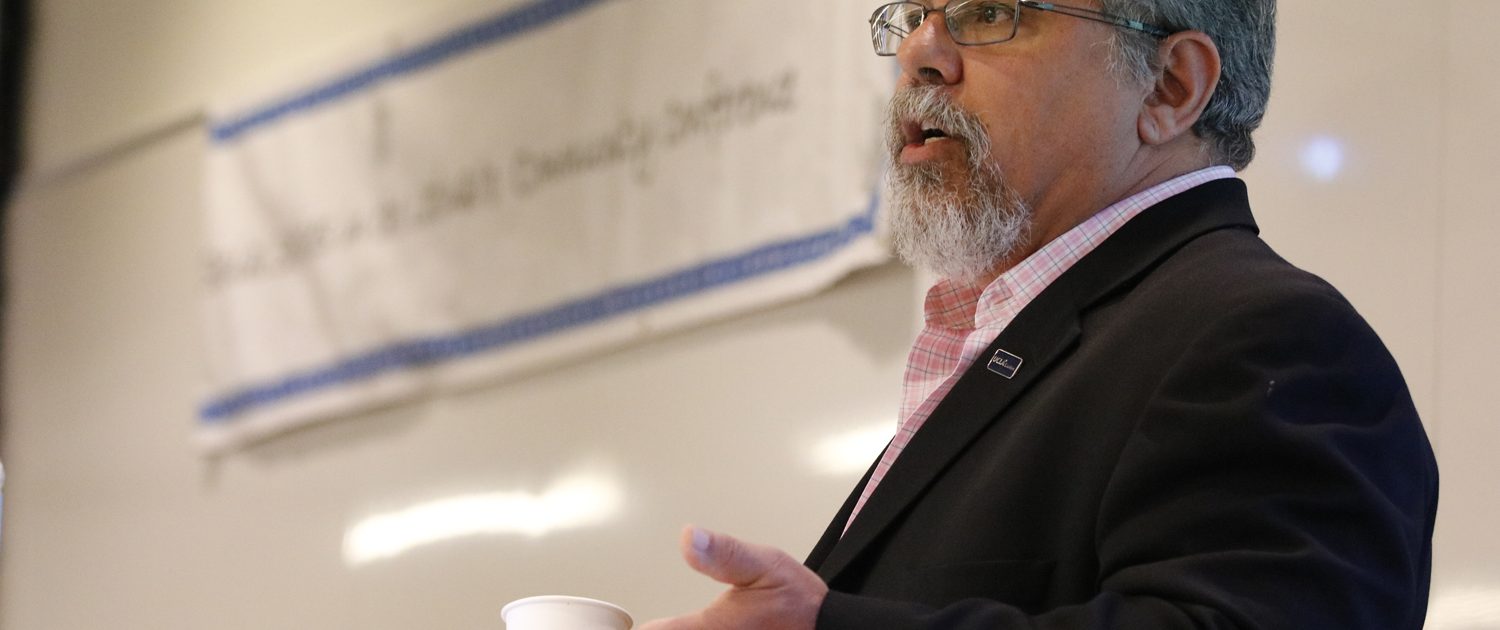


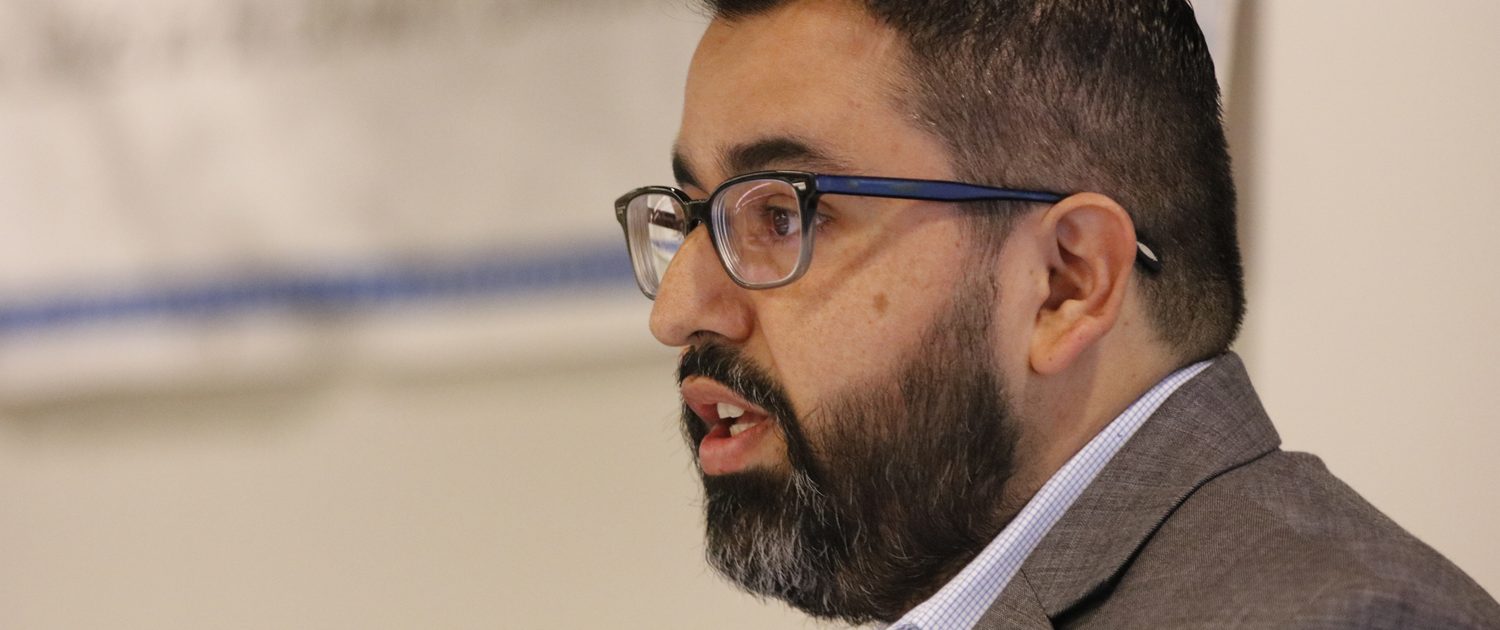

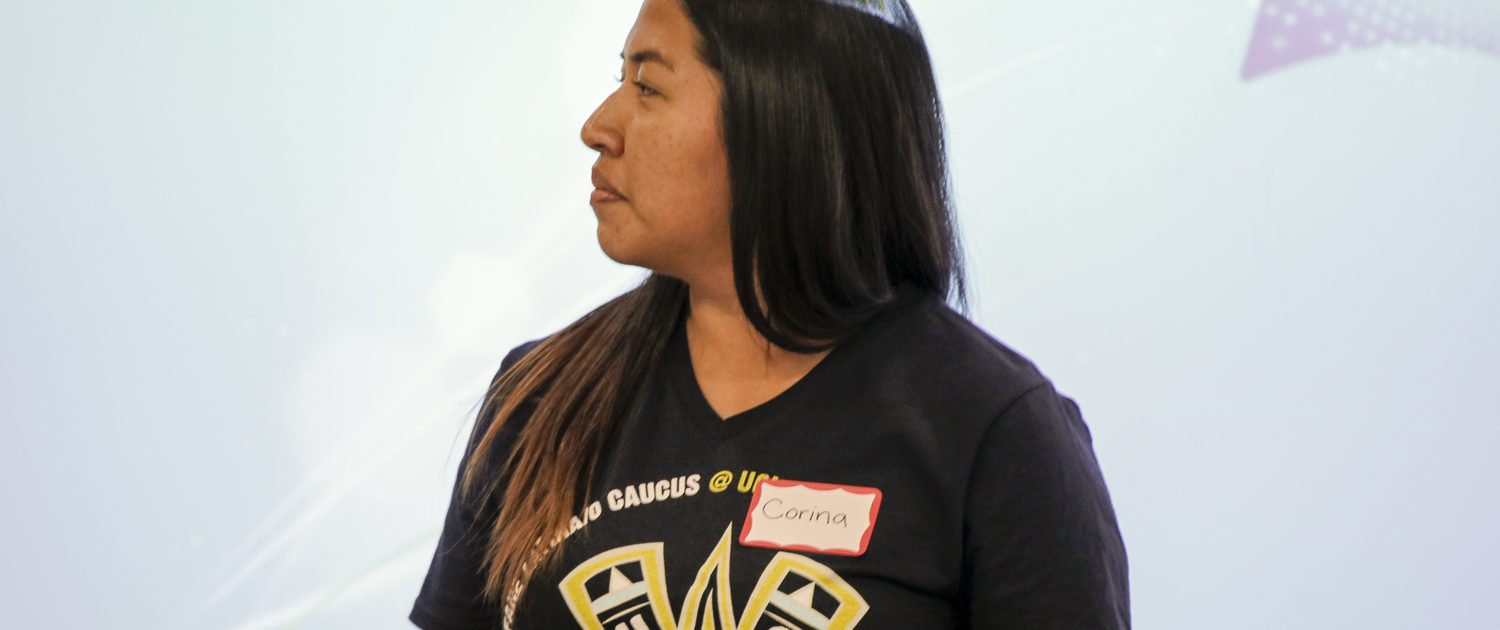

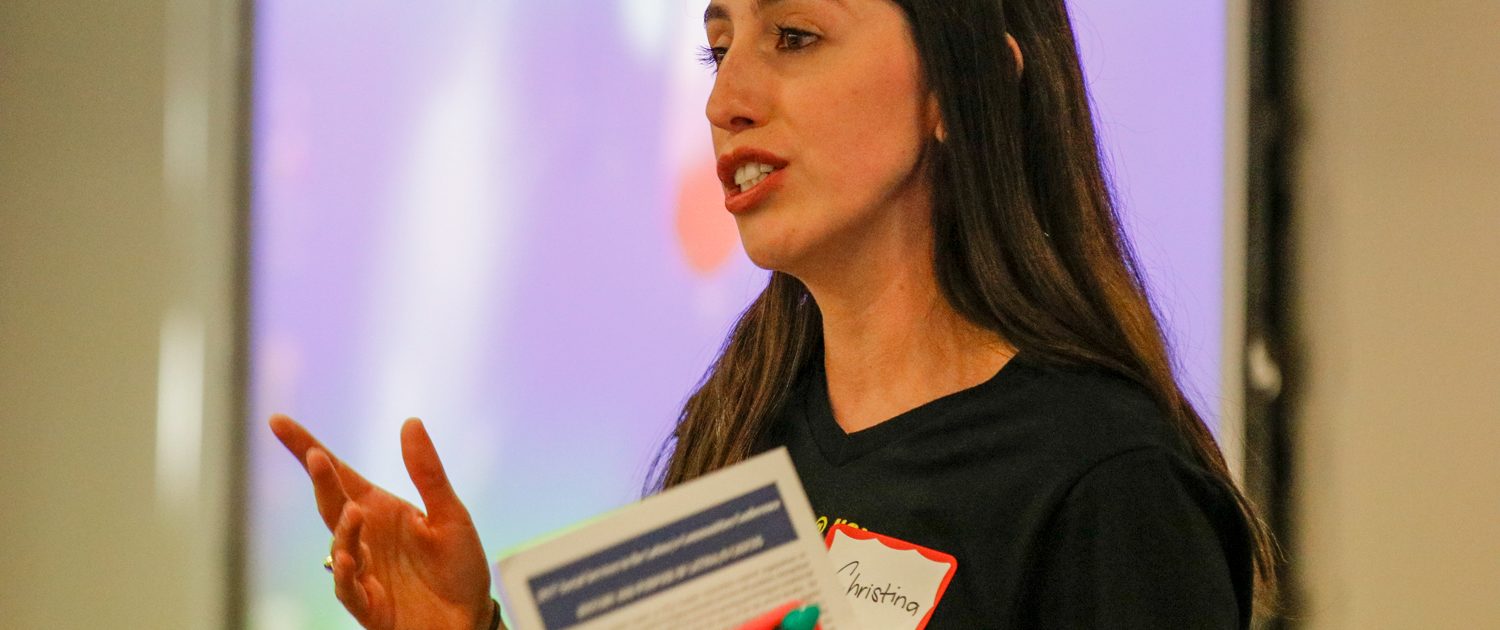

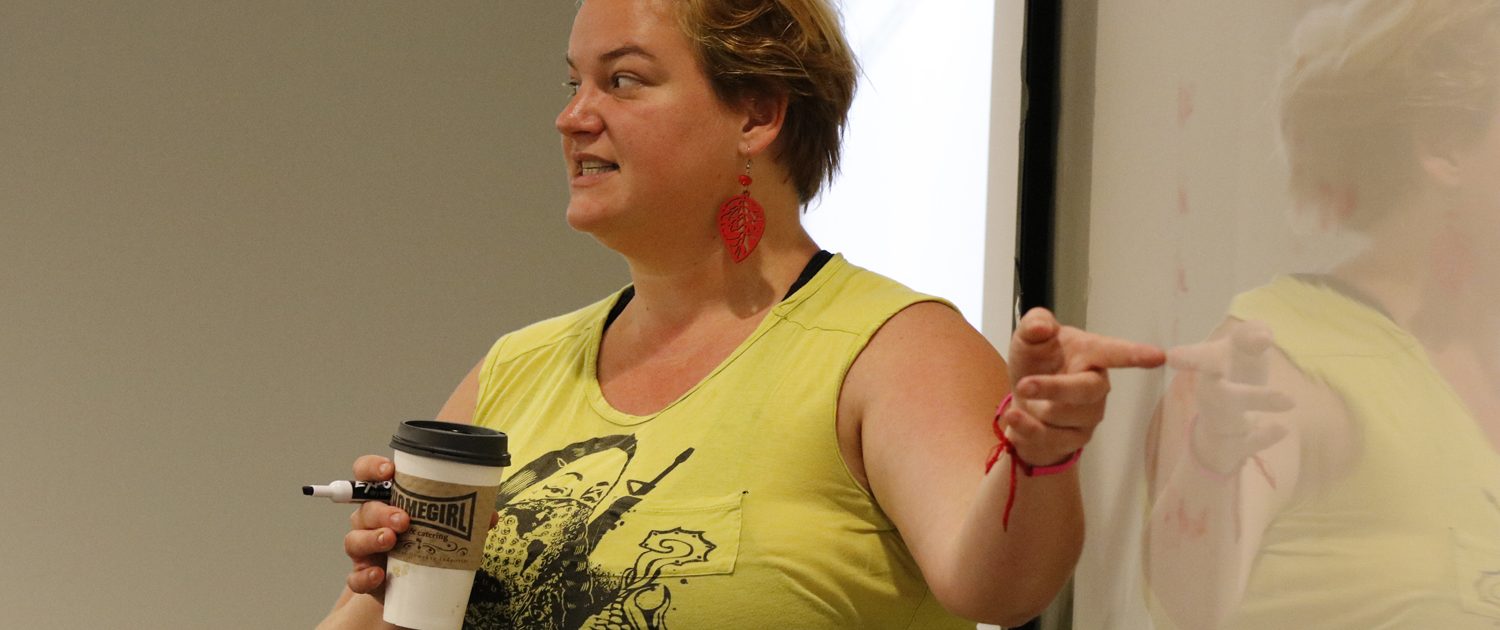


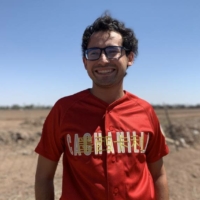
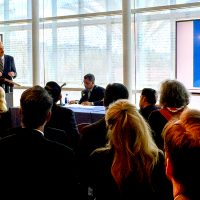
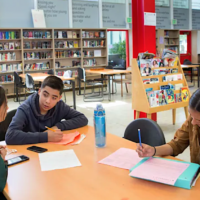
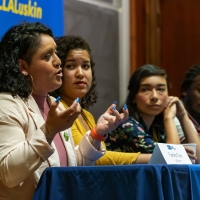
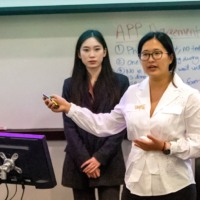
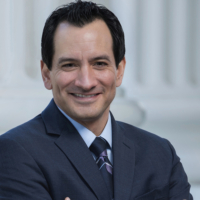



Leave a Reply
Want to join the discussion?Feel free to contribute!